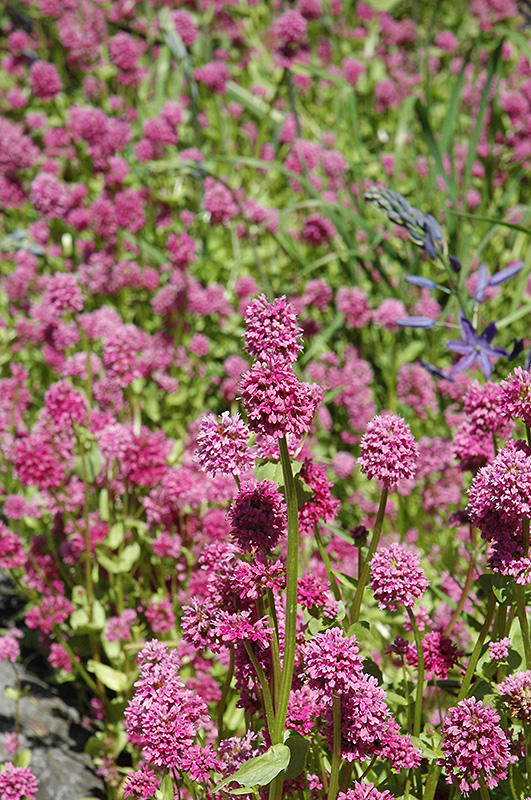Shonnard’s Nursery
Plant Finder Tool
Plant Height: 12 inches
Flower Height: 18 inches
Spacing: 8 inches
Sunlight:
![]()
![]()
Hardiness Zone: (annual)
Other Names: Seablush, Shortspur Seablush, Rosy Plectritis
Description:
A small pink wildflower native to the northwest coast; beautiful clusters of pink flowers are very impressive when massed in the garden or containers
Ornamental Features
Sea Blush features showy clusters of pink flowers rising above the foliage in mid spring. Its oval leaves remain green in color throughout the season.
Landscape Attributes
Sea Blush is an herbaceous annual with an upright spreading habit of growth. It brings an extremely fine and delicate texture to the garden composition and should be used to full effect.
This is a relatively low maintenance plant. Trim off the flower heads after they fade and die to encourage more blooms late into the season. It is a good choice for attracting bees and butterflies to your yard. It has no significant negative characteristics.
Sea Blush is recommended for the following landscape applications;
- Mass Planting
- General Garden Use
- Groundcover
- Container Planting
Planting & Growing
Sea Blush will grow to be about 12 inches tall at maturity extending to 18 inches tall with the flowers, with a spread of 12 inches. When grown in masses or used as a bedding plant, individual plants should be spaced approximately 8 inches apart. Its foliage tends to remain dense right to the ground, not requiring facer plants in front. This fast-growing annual will normally live for one full growing season, needing replacement the following year.
This plant does best in full sun to partial shade. It prefers to grow in average to moist conditions, and shouldn't be allowed to dry out. It is not particular as to soil type or pH, and is able to handle environmental salt. It is somewhat tolerant of urban pollution. This species is native to parts of North America. It can be propagated by cuttings.
Sea Blush is a fine choice for the garden, but it is also a good selection for planting in outdoor pots and containers. It is often used as a 'filler' in the 'spiller-thriller-filler' container combination, providing a mass of flowers against which the larger thriller plants stand out. Note that when growing plants in outdoor containers and baskets, they may require more frequent waterings than they would in the yard or garden.

